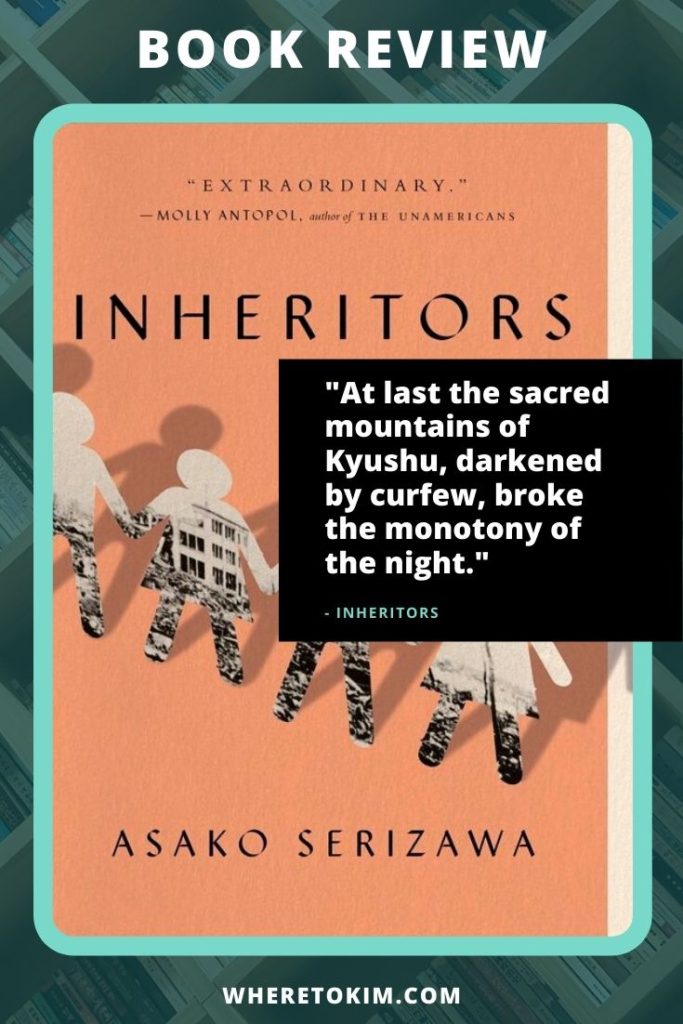Inheritors by Asako Serizawa shows the effects of the Second World War on families through stories spanning decades. Set in the USA and Japan, it explores how history is lived.
Inheritors synopsis
Spanning more than 150 years, and set in multiple locations in colonial and postcolonial Asia and the United States, Inheritors paints a kaleidoscopic portrait of its characters as they grapple with the legacies of loss, imperialism, and war.
Written from myriad perspectives and in a wide range of styles, each of these interconnected stories is designed to speak to the others, contesting assumptions and illuminating the complicated ways we experience, interpret, and pass on our personal and shared histories. A retired doctor, for example, is forced to confront the horrific moral consequences of his wartime actions. An elderly woman subjects herself to an interview, gradually revealing a fifty-year old murder and its shattering aftermath. And in the last days of a doomed war, a prodigal son who enlisted against his parents’ wishes survives the American invasion of his island outpost, only to be asked for a sacrifice more daunting than any he imagined.
Book review
Asako Serizawa was born in Japan and grew up in Singapore, Jakarta, and Tokyo. She currently lives in Boston, USA. Inheritors is her debut novel.
The stories in Inheritors show the effects of the Second World War on Japanese, American, and biracial families both in Japan and the USA. Through stories spanning decades, you read about many of the family members and see the long-lasting aftereffects of that one war. The main question being: what is identity? For example, what happens when you find out that you’re adopted and that you are actually Korean instead of Japanese… are you still the same person as before?
While it is interesting to live through history from different perspectives, it doesn’t help you bond with any of the narrators, young or old. When both the man and the woman of a married couple get a voice, it is interesting to read the internal thoughts of both parties and at the same time boring because you know or suspect most of it already.
History is where it happens and the stories in Inheritors read like fragments instead of stories with a plot. What contributes to that feeling is that all stories have different formats. The stories I liked had an interesting narrator and a ‘regular’ story format, meaning not a witness account, diary, or interview. Somehow the emotions seem more real when you follow a character than when you listen to that character telling you about his or her feelings afterward. I liked the stories Allegiance, Luna, and The garden, aka theorem for the survival of the species (can I request a sequel to this story with the impossible name?), but didn’t like the other stories overly much.
After reading the author’s note I figured that it is the stories based on/very much inspired by other stories that I enjoyed least. I do like Asako Serizawa’s reason for using these stories as inspiration. With every story in Inheritors, she discusses history and sparks questions about how history is made. Her goal is to show how history is lived, remembered, reproduced, and used, and how unbound it is by the time and place in which it is grounded.
It’s a noble cause that could have been executed better. The author says historical fiction is more than writing down facts, and in my favorite stories she succeeded in that, but in many others, the execution seemed too factual, obscuring the emotions of the people that lived in these times. I had high expectations of Inheritors – it has high ratings on Goodreads – but unfortunately, I didn’t like the majority of the stories. I do appreciate reading new perspectives on history as I know it.
Interested?
Get your copy of Inheritors from Amazon.







